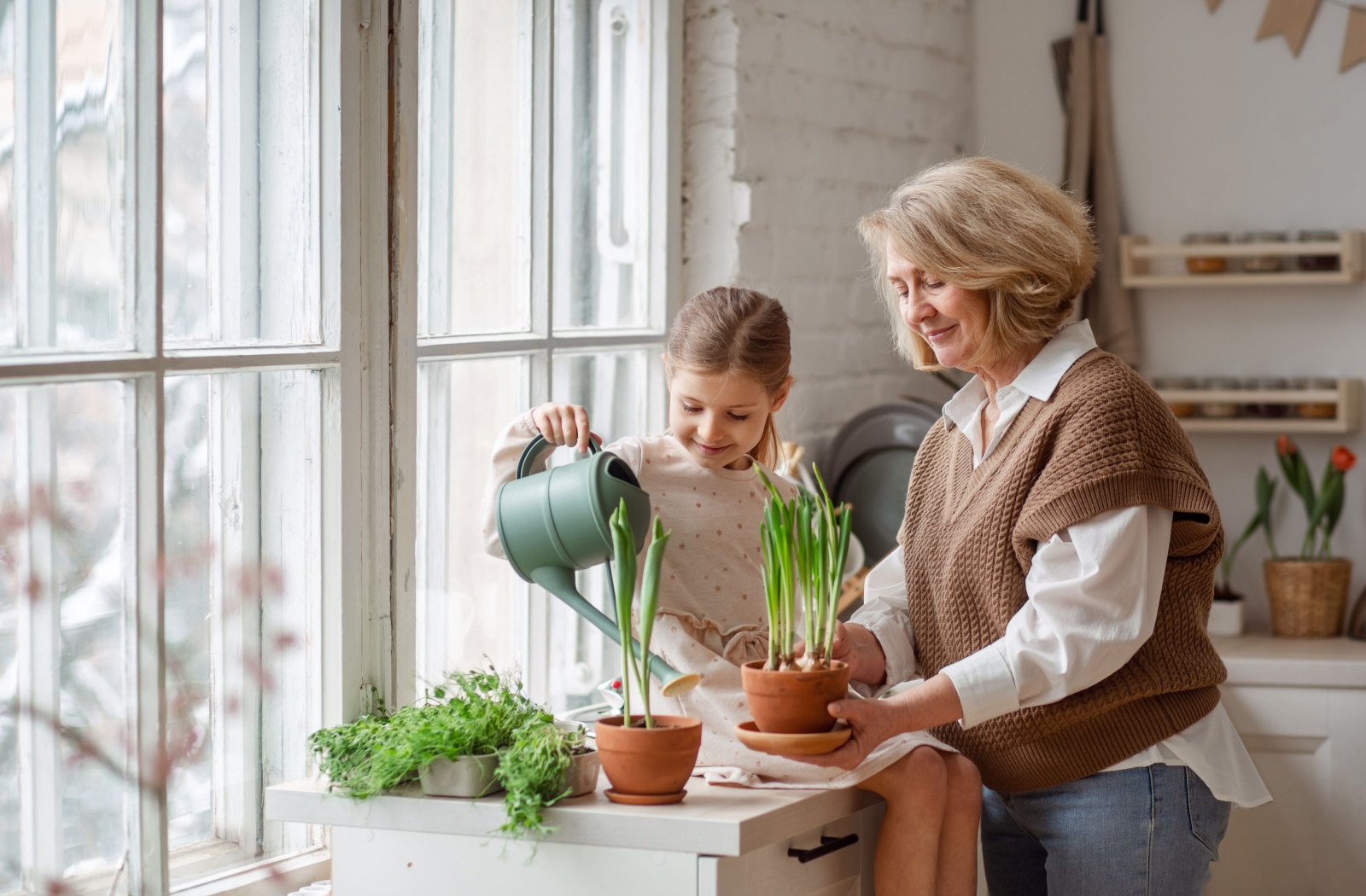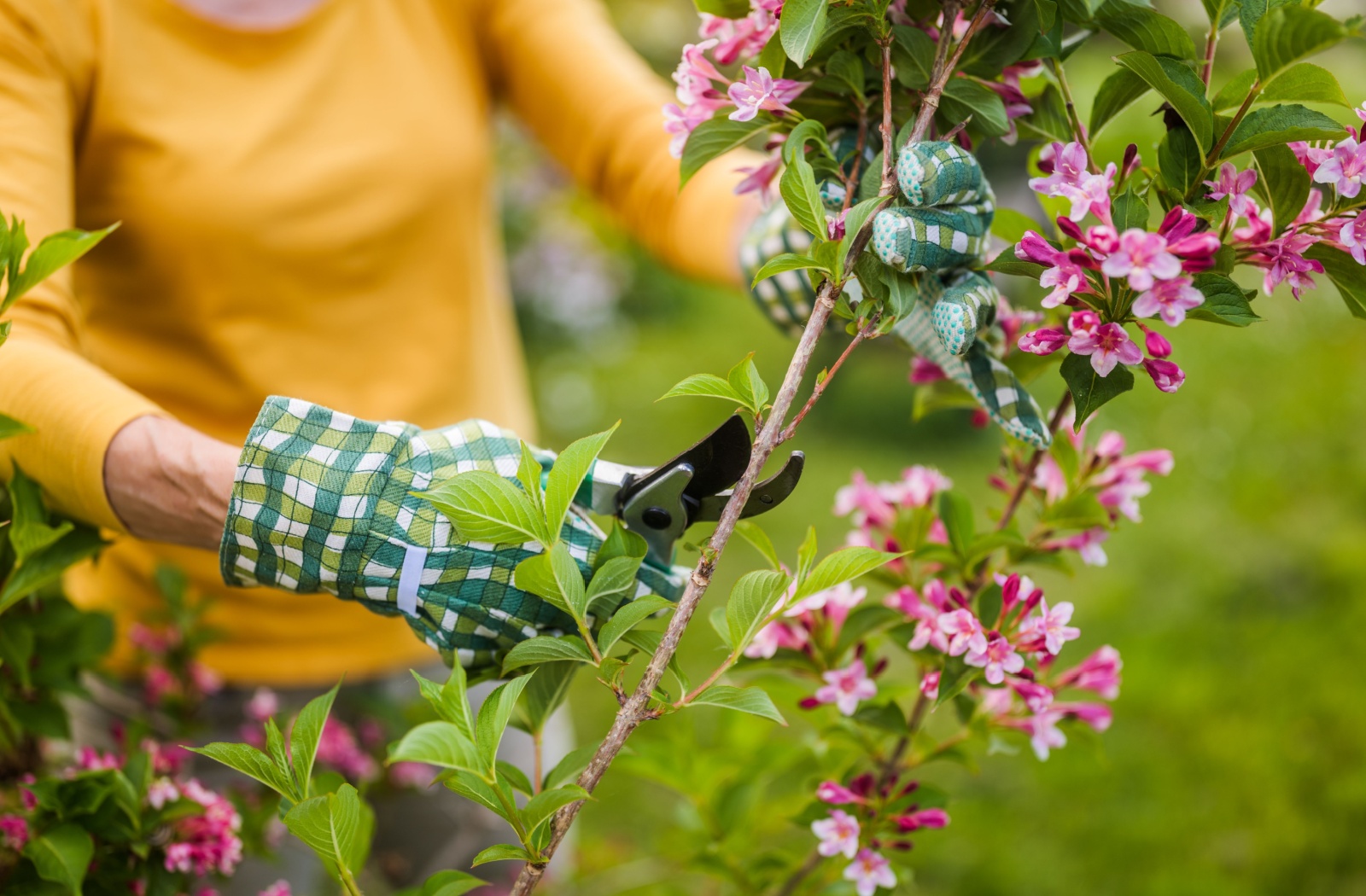Gardening is more than just an enjoyable hobby for many people. It’s a revitalizing activity that enriches their lives. From nurturing flowers to growing fresh vegetables, the benefits of gardening for seniors are a unique combination of physical, mental, and social benefits. Whether you’re an experienced green thumb or a beginner eager to dig into the soil, gardening is an activity that celebrates life’s growth, tranquility, and vitality.
Many senior communities make gardening an accessible hobby by having community gardens that residents can care for on-site or encouraging potted plant gardening. If gardening sounds like something you’d enjoy, there are plenty of ways to get started.
Physical Health Benefits of Gardening
Gardening may be a relaxing hobby, but it can be a workout in disguise. Tending to plants involves movements like digging, lifting, and stretching that improve overall strength and mobility. These movements can result in better physical health and increased independence.
Better Strength, Flexibility, & Balance
Planting seeds or pulling weeds provides gentle resistance that helps strengthen muscles and improve coordination. Reaching for tools or bending to plant flowers naturally enhances flexibility, while navigating uneven garden terrain improves balance, reducing the risk of falls.
Staying physically active is a proven way for seniors to maintain good health and prevent negative health outcomes.
Better Heart Health
Extended periods of digging, watering, or pruning contribute to moderate-intensity physical activity, which can lower blood pressure and cholesterol. According to some studies, older adults who spent time in the garden had a lower risk of cardiovascular disease.
Better Diet
Growing your fruits, vegetables, and herbs provides fresh, nutritious food and encourages healthier eating habits. Imagine harvesting a handful of ripe tomatoes or crisp lettuce for dinner. Gardening fosters a deeper appreciation for wholesome, organic food and reduces reliance on processed ingredients.
Improved Mental Health Through Gardening
Beyond physical benefits, gardening offers countless reasons to feel good inside. From keeping your stress levels low to fostering a sense of achievement, it’s a natural way to nurture mental and emotional well-being.
Reduced Stress
There’s something inherently soothing about digging into the soil and spending time in nature. Studies show that gardening reduces cortisol levels, the stress hormone, while promoting the release of endorphins, those “feel-good” chemicals. Whether it’s the scent of fresh soil or the feeling of sunshine on your face, the therapeutic effects of gardening provide a natural antidote to anxiety.
Better Mental Health
For seniors struggling with loneliness or depression, tending to plants can offer a sense of purpose and joy. Watching plants flourish under your care can feel incredibly rewarding. This nurturing activity demands patience and optimism, which contribute to improved mental health.
Sense of Accomplishment
From planting a seed to watching it bloom, gardening allows you to witness the tangible results of your efforts. Even small victories like growing a single flower can foster a profound sense of achievement, boosting self-esteem.
Mindfulness & Meditation
Gardening fosters mindfulness by drawing your attention to the present moment. It encourages you to focus on activities like planting, watering, and observing the growth of your garden, effectively acting as a form of meditation. For seniors, this mindfulness can promote inner calm and improve mental clarity.

Keeping Your Brain Sharp
Engaging in the hands-on tasks of gardening sharpens critical cognitive skills such as memory, planning, and problem-solving. Research indicates that activities requiring focus and creativity, like gardening, can keep the mind sharp and promote lifelong learning.
Better Problem-Solving
Figuring out how to handle pesky garden pests or experimenting with soil types develops problem-solving skills. Overcoming challenges in the garden also teaches resilience, a trait that’s helpful at any stage of life.
Reduced Risk of Cognitive Decline
Did you know that gardening may reduce the risk of cognitive decline and dementia? Studies show that engaging in stimulating leisure activities, like gardening, keeps the brain active and lowers the likelihood of developing Alzheimer’s.
Regular gardening integrates physical activity with mental stimulation, making it ideal for seniors who want to maintain their mental acuity.
The Connection Between Socialization & Gardening
Gardening is also an excellent social activity. Community gardens, garden clubs, and plant swap events offer opportunities to connect with others who share your passion. It’s a chance to chat with neighbors, share gardening tips, and bond over a love of nature.
Building friendships through gardening helps combat isolation while fostering a sense of belonging.
Staying Active in All Stages of Life
Gardening is an activity that grows with you through every stage of life. Whether you have a large backyard garden or just a few pots on a balcony, there’s always a way to bring nature into your life. Even for seniors with mobility challenges, raised garden beds or adaptive tools make gardening more accessible.
The beauty of gardening is that it can be as simple or complex as you like. Start with herbs like basil or parsley, or take on a more significant challenge with a colorful flower patch or vegetable garden.
Contact our compassionate team at Washington Pointe Las Colinas if you or a loved one are looking for a community that can support and encourage you to enjoy the simple things in life, like gardening. We’d love to show you the community.









